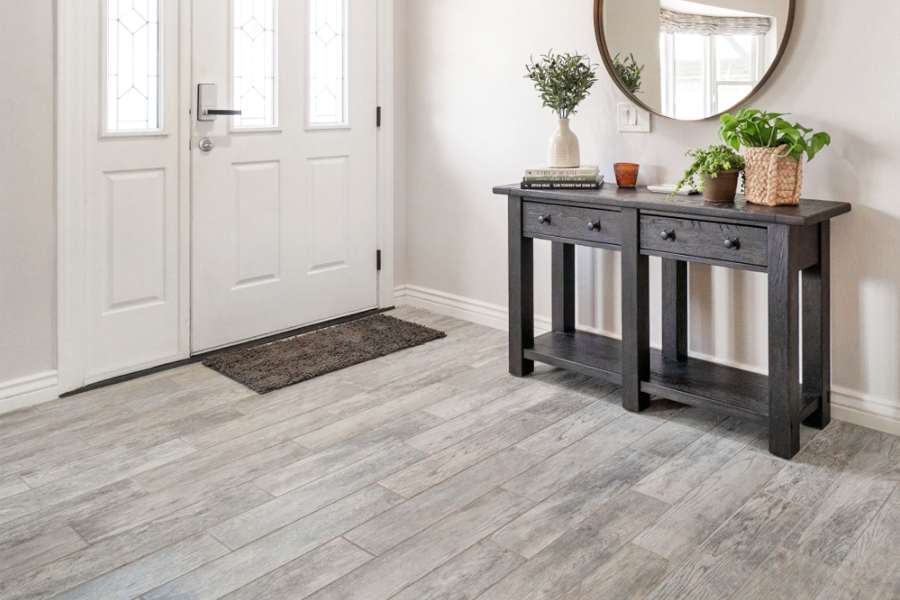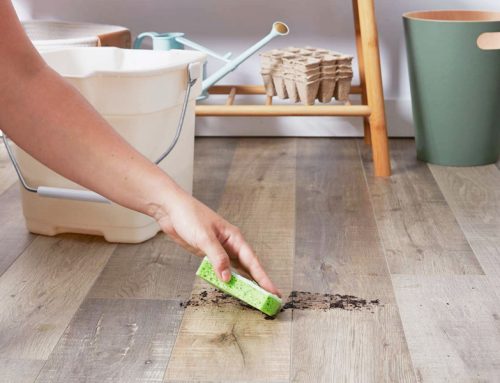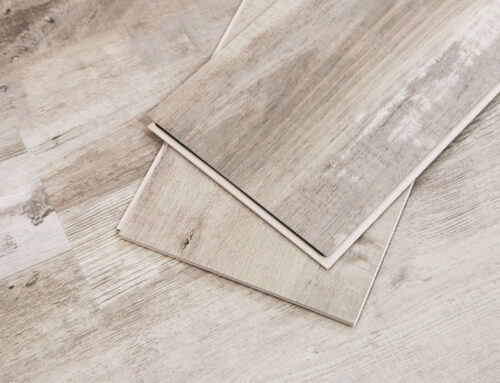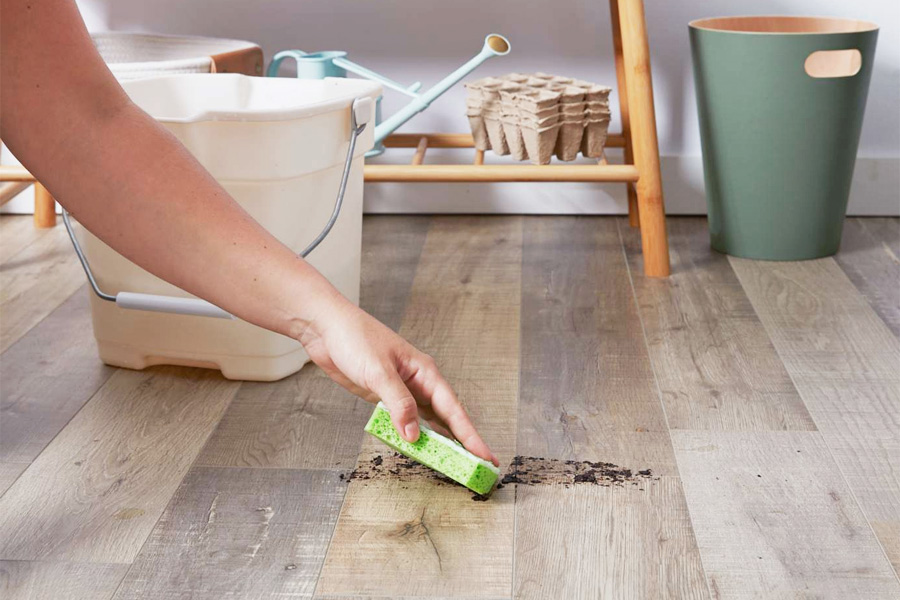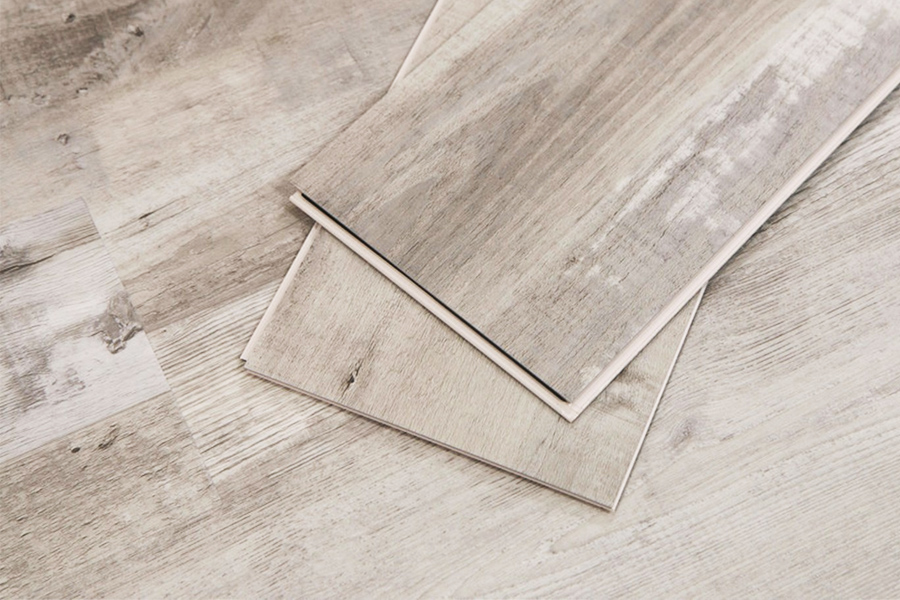When it comes to choosing flooring for your entryway, durability and practicality are key factors to consider. As the first impression of your home, the entryway floor needs to withstand heavy foot traffic, moisture, and muddy shoes, while still making a stylish statement. With a wide range of options available, it can be overwhelming to decide which flooring material is best suited for your entryway.
In this post, we will explore the top flooring options for entryways, highlighting their advantages and drawbacks, so that you can make an informed decision for your home.
Understanding the Essentials of Entryway Flooring
Choosing the right flooring for your entryway requires an understanding of its unique requirements. The entryway floor is subjected to heavy foot traffic on a daily basis, so durability is of utmost importance. Additionally, the floor should be able to withstand wet shoes, mud, and other seasonal changes. Therefore, opting for a practical choice of flooring material is essential to ensure longevity and minimal maintenance.
Importance of Durability and Aesthetics
Durability is a crucial factor to consider when selecting entryway flooring. The constant foot traffic, especially in a busy household, can quickly wear down a less durable floor. By choosing a flooring material that is durable, you can ensure that your entryway floor will withstand the test of time and maintain its beauty.
Aesthetics also play a significant role in creating a great first impression for your guests. The entryway is the first space they see when they enter your home, and the flooring sets the tone for the rest of the interior design. Opting for a flooring material that reflects your personal style and enhances the natural beauty of your entryway can make a lasting impression.
Role of Seasonal Changes in Choosing Flooring
When selecting flooring for your entryway, it’s crucial to consider how it will hold up in different seasons. Look for materials that can withstand seasonal changes and require low maintenance year-round. Durable options that can handle stains, puddles, and heavy foot traffic are essential, as well as materials suitable for underfloor heating. Whether it’s concrete, wood, or hardwood flooring, the chosen material should be versatile enough to handle the challenges of every season without compromising on style or functionality.
Porcelain Tile: An Elegant Option for Entryways
Porcelain tile offers a sleek and durable option for entryways. Its water resistance and easy maintenance make it ideal for high-traffic areas like entryways. The versatility of porcelain tile allows for various design options, including patterns that mimic wood flooring or concrete flooring. Whether you prefer the classic look of hardwood flooring or a more modern touch, porcelain tile can complement any style. Its durability and resistance to wear and tear make it a practical choice for entryways, ensuring a long-lasting and elegant hallway flooring option.
Advantages of Porcelain Tile Flooring
When it comes to entryway flooring, porcelain tiles are a top choice. Their durability allows them to withstand heavy foot traffic, making them perfect for high-traffic areas. Additionally, their natural beauty adds a stylish touch to any entryway, while their low-maintenance nature makes them a practical and convenient option. With a variety of choices available, porcelain tiles can easily complement your personal style, making them a versatile and attractive flooring option for any entryway.
Drawbacks of Porcelain Tile Flooring
Porcelain tiles may crack under heavy impact and feel cold, especially in colder climates. The grout lines require regular maintenance, and the hardness of porcelain tiles is uncomfortable for some homeowners. Additionally, the installation can be costly and time-consuming. Incorporating a warmer flooring option like wood or hardwood could be a great alternative for your entryway.
Ceramic Tile: A Versatile Choice for Entryways
When it comes to entryways, ceramic tile is a versatile and durable option. It offers great resistance against scratches and water, making it ideal for high-traffic areas. With an array of designs, ceramic tiles can mimic the look of hallway flooring, wood flooring, or even concrete flooring. The comeback of cement and beige hues in interior design has also made ceramic tiles a popular choice. Whether you prefer a classic or modern look, ceramic tile can be paired with wallpaper and hardwood flooring to create an inviting entryway.
Benefits of Ceramic Tile Flooring
Ceramic tile flooring offers durability and can withstand heavy foot traffic, making it an ideal choice for entryways. With low maintenance requirements, it proves to be a practical and long-lasting option. The wide range of choices available in ceramic tiles allows you to personalize your entryway to match your unique style. Additionally, the stylish and durable nature of ceramic tiles ensures that they create a lasting first impression for anyone entering your home.
Limitations of Ceramic Tile Flooring
When it comes to ceramic tile flooring, there are some limitations to consider. For instance, in colder climates, ceramic tiles may feel cold underfoot, which can be uncomfortable for some homeowners. Additionally, the grout lines in ceramic tiles require regular maintenance to keep them looking neat and clean. Some people also find the hardness of ceramic tiles uncomfortable, which is something to take into account. Furthermore, the installation of ceramic tiles can be costly and time-consuming, and professional cleaning may be necessary to maintain their natural beauty.
Luxury Vinyl Tile or Plank: The Modern Pick for Entryways
Love the versatility of luxury vinyl tile or plank (LVT/LVP) for entryways. Its durability makes it perfect for high-traffic areas. LVT/LVP comes in designs that mimic wood, concrete, or even wallpaper. The water-resistant feature is a bonus, especially during rainy seasons. With its quick installation process, this modern flooring choice is making a strong comeback. It’s an excellent alternative to hardwood flooring and can complement any hallway flooring. LVT/LVP in shades of beige or cement also adds a touch of elegance to your entryway.
Why Choose Luxury Vinyl Tile or Plank
Luxury vinyl tile and plank stand out for various reasons. Their durability against foot traffic, stains, and moisture make them ideal for high-traffic areas like entryways. The low maintenance and easy-to-clean nature of the vinyl material make it a practical choice for busy hallways. Moreover, the replication of the natural beauty of hardwood floors in luxury vinyl planks adds a touch of elegance to any entryway. With a plethora of design choices available, luxury vinyl tile is not only functional but also stylish. Additionally, the underfoot comfort provided by luxury vinyl tile ensures a cozy and inviting atmosphere, especially on rainy days.
Potential Downsides of Luxury Vinyl Tile or Plank
Luxury vinyl tile may not match the longevity of natural stone flooring, and prolonged exposure to sunlight can lead to fading over time. While it is resistant to moisture, extreme puddles or spills may still pose a challenge. Furthermore, sharp objects have the potential to cause scratches on luxury vinyl tile. Lastly, consider that luxury vinyl tile may not be the ideal choice for high-end interior design.
Laminate Flooring: A Cost-Effective Alternative for Entryways
When it comes to finding the right flooring for entryways, laminate flooring stands out as a cost-effective alternative that offers both durability and style. With its versatility and easy maintenance, laminate flooring is an excellent choice for high-traffic areas such as entryways. Its ability to mimic the look of hardwood flooring and other materials makes it a popular option, providing a wide range of design possibilities for your entryway. Whether you prefer the natural look of wood flooring or the modern touch of concrete flooring, laminate offers a practical solution for your entryway needs.
Pros of Laminate Flooring
When it comes to entryway flooring, laminate flooring offers practicality and a wide range of design options. It’s an excellent choice for high-traffic areas like mudrooms, providing both durability and underfoot comfort, especially on rainy days. Additionally, its low maintenance nature makes it easy to clean and maintain, perfect for busy entryways. The durability of laminate flooring makes it a reliable option for areas with heavy foot traffic.
Cons of Laminate Flooring
Laminate flooring, while resistant to moisture, may not hold up well against excessive puddles or spills, potentially leading to damage. Its susceptibility to moisture can result in warping and overall deterioration. Additionally, tough stains like ink or dye could prove challenging to remove from laminate flooring. Given its vulnerability to moisture, it might not be the most suitable option for areas with high humidity levels. The floor tiles of laminate flooring are prone to damage from moisture, often necessitating replacement.
Stone Flooring: A Classic Selection for Entryways
Stone flooring is a timeless choice for entryways, known for its durability and elegance. It adds a touch of sophistication to the space while being easy to maintain. Whether it’s sleek marble, rustic slate, or charming limestone, stone flooring can elevate the aesthetic appeal of your hallway. Its natural variations in color and texture make each floor unique, creating a warm and welcoming ambiance. Consider pairing stone flooring with a complementing wallpaper or a pop of color to make a stylish comeback.
Perks of Stone Flooring
Stone flooring offers more than just durability and resistance to stains and moisture. With a variety of materials like slate, travertine, and limestone, it provides endless design options in your entryway. The natural beauty and practicality of stone flooring make it an ideal choice for high-traffic areas. Additionally, the choices available ensure that your entryway is not only durable but also stylish. Embracing stone flooring can bring both elegance and functionality to your home’s entrance.
Disadvantages of Stone Flooring
When it comes to stone flooring, certain drawbacks should be considered. For instance, stone flooring, like limestone, might necessitate professional installation due to its weight. In high-traffic areas, stone flooring, such as slate, can be prone to chipping or cracking. Additionally, maintenance and cleaning of grout lines are regular requirements for stone flooring. Furthermore, stone flooring materials like travertine may not be suitable for DIY installation and may require sealing to prevent stains and moisture damage.
How to Choose the Right Flooring for Your Entryway?
How to Choose the Right Flooring for Your Entryway?
When selecting flooring for your entryway, it’s important to consider durability, style, and ease of maintenance. Look for materials like tile, hardwood, or laminate that can withstand heavy foot traffic and are resistant to moisture and dirt. Additionally, choose a flooring option that complements the overall design of your home’s entrance.
Factors to Consider While Selecting Entryway Flooring
When selecting entryway flooring, it’s essential to consider materials that can endure heavy foot traffic, like vinyl, laminate, or stone. The square footage of the entryway should also influence your choice. Additionally, practicality is key, given the presence of moisture, mud, and wet shoes. Opt for durable options such as luxury vinyl tile for longevity, and ensure that the flooring makes a memorable first impression, reflecting your personal style.
Is Investing in Expensive Entryway Flooring Worth It?
Investing in high-quality flooring for your entryway is worth it. It sets the tone for your home, withstands heavy foot traffic, and leaves a lasting impression on guests. Durable materials ensure longevity and practicality.
Best Flooring For Your Entryway
In conclusion, choosing the right flooring for your entryway is crucial as it sets the tone for your home and withstands heavy foot traffic. Porcelain tile offers elegance and durability, making it a popular option. However, it may be prone to cracking and can be slippery when wet. Ceramic tile is versatile, easy to maintain, and comes in various designs. Luxury vinyl tile or plank provides a modern look, is water-resistant, and offers easy installation. Laminate flooring is cost-effective but may not be as durable as other options. Stone flooring exudes a classic charm but can be expensive and requires regular maintenance. When selecting entryway flooring, consider factors such as durability, aesthetics, and the impact of seasonal changes. Ultimately, investing in high-quality flooring that suits your style and budget is worth it to create a welcoming entryway for years to come.


